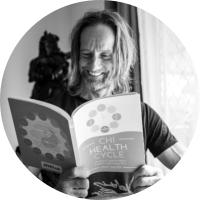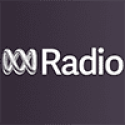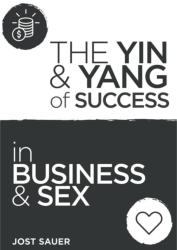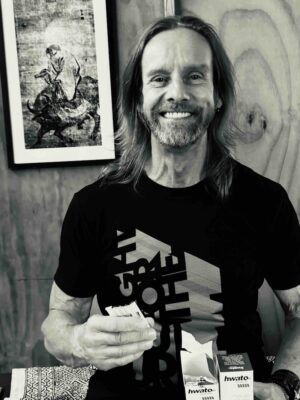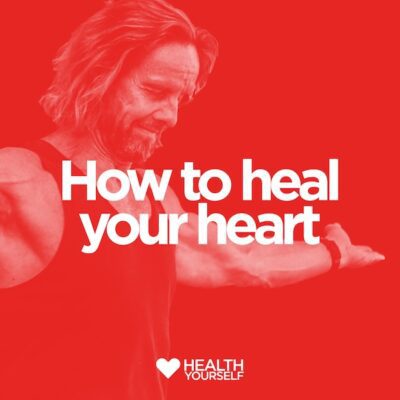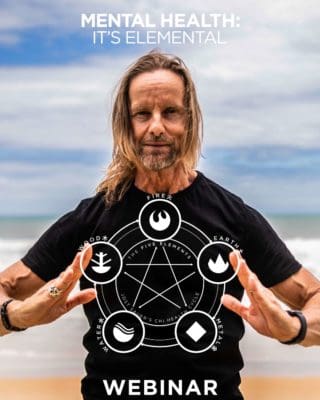Why weekly date nights and romance advice fail – and how to address the invisible patterns that actually determine relationship success or failure. The Surface Solution Trap “Can you reignite intimacy and passion with weekly dates?” This question came up in my clinic recently, and while scheduled romance…
AddictionArticles Articles
Articles / Ecstasy interpreted using Chinese medicine
Posted August 12, 2009
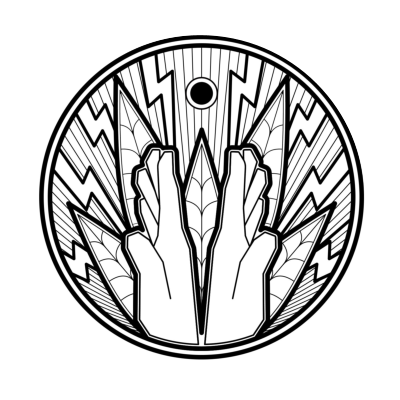
Ecstasy interpreted using Chinese medicine
by Jost Sauer
Ecstasy (MDMA) is an unusual drug. Its chemical structure bears similarities to both the stimulant methamphetamine and the hallucinogen mescaline. Ecstasy is sometimes categorised as an entactogen — which means ‘touching within’ and, like all the other recreational drugs, it was developed for therapeutic use. It is a drug that provides insight and empathy and it was used covertly as a psychotherapeutic drug for several decades. It was reputedly highly successful in marriage and relationship counselling.
Then Ecstasy hit the party circuit, got banned and became one of the most popular of the party drugs. The majority of its use is now of course recreational. In a recent publication on Ecstasy it was estimated that each weekend around the world nearly a million people take the drug. The author points out that when millions of people take a legal drug such as alcohol every week, the medical establishment sponsors thorough research and public education about that substance but when that substance goes underground it becomes inaccessible to researchers but readily available on the black market (Holland J. 2001). The result is widespread abuse, little useful information about the drug and its effects and no control over purity.
Sasha and Anne Shulgin, who were instrumental in the support of Ecstasy as a psychotherapeutic tool in the late 70s, suggested that in the recreational context it should not be taken more than four times in a year. But as a therapist I am now treating a lot of people who have taken hundreds of Ecstasy trips. They have used it in sufficient quantity to have significantly altered their energy field and organ condition and many report feeling severely depressed. My approach is to work with rather than against drugs.
On one level working with drugs means understanding the process by which they alter your state and then seeking to recapture that through beneficial means. However, working with drugs also means working with the changes drugs bring. I use the principles of body-mind medicine and Traditional Chinese medicine (TCM) to do this. In psychiatry and psychotherapy drugs are used to create temporary change. Under the guidance of the therapist, the therapeutic drug creates new reference points for the patient. For example a timid or anxious person may temporarily be able to experience themselves as confident or outgoing. This becomes a new reference point for them to work towards.
There are parallels in the recreational drug world, particularly in regards to Ecstasy. The majority of the millions of people who take Ecstasy have positive experiences of themselves as loving, expressive beings capable of bonding with those around them. They identify effects including feelings of insight, empathy and forgiveness. Some claim to have ‘found themselves’ or to have been changed for the better after taking the drug. In Western medicine, which is based on a division between body and mind, and between patient and ‘condition’ the effects of Ecstasy or MDMA are attributed to three main neurochemical mechanisms: the blockade of serotonin reuptake, the induction of serotonin release and the induction of dopamine release (ibid p.29).
In Traditional Chinese Medicine, however, the organs are the platform from which drugs operate. Quality of life is dependent on the effective functioning of the organs. Drugs temporarily and artificially enhance the function of organs and produce emotional, physiological and spiritual states in accord with the true nature of the organ.
My research indicates that specific drugs target specific organs. Marijuana for example highlights the functions of the Liver. Hence marijuana will produce states of happiness, creativity and a heightened awareness of chi-flow (the positive attributes of the Liver), but also the opposite states of frustration, anger and chi-stagnation (the negative attributes of the Liver). If you use the model of Traditional Chinese Medicine to explain the action of Ecstasy, it could be said to target the Heart and the Spleen.
In TCM the Heart is the organ responsible for excitement, joy and love and the Spleen is the organ responsible for mental clarity. The Spleen also transforms and transports thoughts. When you take Ecstasy, the joyful expression of loving thoughts takes top priority. All your deep-seated are transformed and transported by fluid thoughts or actions. Ecstasy shows you the qualities of the Heart and Spleen – how loving, expressive and caring you can be – this is why you can communicate with people in a way you couldn’t or wouldn’t without the drug.
But unlike the therapeutic context, in which the drug is administered in a very low dose by a professional who then guides the process, in the recreational context the dose is much, much higher and although you may initially feel inspired or uplifted, euphoric drug experiences are always followed by the opposite emotional states of emptiness or depression. After an Ecstasy weekend many people report feeling physically, spiritually or emotionally low.
In my research, based on body-mind medicine and TCM, this occurs because the drug has made you feel good by drawing upon your inner energy stores, your Jing. Afterwards your organs will be depleted of life-force or fuel and your sense of wellbeing will naturally be adversely affected. In addition, once the person stops using the drug, the great feelings and the insight and empathy generated by the drug become stored in the body-mind as a reference point reminding the ex-user of what they are missing. This often drives people to return to drug use but the more Ecstasy you take the harder it is to achieve the desired blissful states and the more prominent the side effects.
In Western medicine the side effects of Ecstasy use include anxiety, paranoia, impaired memory function but primarily depression. The latter is considered to be a ‘chemical imbalance’ in the brain that can be redressed by administering drugs to ‘rebalance’ the brain. In Traditional Chinese Medicine, in which psychology and medicine are one, and body, mind and spirit are addressed equally, depression is not considered a condition but rather a symptom, an emotional state arising from major underlying imbalances in the organs and energy field.
Depression, as well as anxiety and paranoia can be linked to Spleen Chi deficiency and Heart imbalances. These are the organs that Ecstasy targets and as they become deficient or depleted the negative aspects arise. Another short term side effect of Ecstasy use is jaw tension and teeth clenching. According to Traditional Chinese Medicine, the Spleen is also associated with the mouth, with eating, talking and so on. Ecstasy can cause involuntary teeth clenching, grinding or chewing as a result of what I would consider excessive Yang operating in the Stomach meridian. The Stomach is the Yang partner of the Spleen and the upper part of the Stomach meridian runs along the muscles of the mouth. Speed use can generate similar symptoms.
My drug recovery programs are based on the body-mind medicine premise that the body needs to be repaired in line with the mind. Drug-highs work via the body, they originate in your organs but on drugs you feel your mind and body as one. Psychotherapists recognise that Ecstasy can be used to show people the ‘result of successful therapy in advance’. In the recreational context you could say that Ecstasy has shown millions of people a much more intense preview of successful ‘self-development in advance’. The problem is most do not view the experience in this context. It is considered a drug high and there is no processing of the experience. There is no connection made between the feelings when high and the ‘normal’ person. It is not integrated into the body-mind. Accordingly any potential for positive change that may have occurred is not exploited, energy cannot flow and the organs are affected creating anxiety, sadness and depression instead.
Accordingly I treat post-drug depression through the body first, through acupuncture or bodywork to release and utilise the blocked energy positively. Improved diet, exercise and powerful nutritional supplements are also important to boost organ function and improve physical, emotional and spiritual outlook. Then I add Chi-gung, yoga or Tai-chi. The body-mind needs new reference points for feeling good to displace the drug-high references and Chi-work is the best way to do this.
Everything you feel on Ecstasy you can feel without it as these states are inherent within us all and accessed via our organs. The final element is meditation techniques to manifest joy – a function of the Heart. This is an important component in recovery because any drug use is on some level linked to a desire for spiritual experiences, but particularly so in the case of Ecstasy. Ecstasy can also be categorised as an entheogen, or a drug which gives rise to the God within. The natural plant-based entheogens such as daytura, psilocybin mushrooms or ayahuasca have been used for thousands of years in the religious or spiritual traditions of many cultures and there is an academic argument that the psychedelic experience derived from entheogens may even be the basis of religion.
I do think the rise in Ecstasy use is connected to a growing desire for ritual, ceremony and meaningful experiences. I have seen a new consciousness rising driven by an interest in spiritual experiences and the need for belief in a higher power. In his seminal book on spirituality, Roger Walsh identifies four claims that constitute the core of all religious or spiritual wisdom as follows: that there are two realms of reality, the physical realm and the realm of spirit; that humans partake of both realms; that we can our divine spark; and that realising our spiritual nature is our highest goal.
A drug like Ecstasy can appear to give instant access to all this. Unsurprisingly, raves, dance parties and clubs became the new churches, where Ecstasy and music seem to deliver euphoric experiences on demand. So in moving on from Ecstasy use, it is important to find another means of achieving that state. Otherwise you will never be truly satisfied or happy, and depression can linger.
For more updated info on how to quit the drugs but keep the dream, read my book The Rebels Guide to Recovery.
Share this article:
About Jost Sauer
Jost Sauer is an expert in preventative health and Chinese medicine.
Jost pioneered lifestyle medicine for addiction, kickstarted a recovery revolution with his groundbreaking rehab program, and then adapted the program for everyone as the Chi Cycle lifestyle; a health-boosting, fat-burning feel-good day plan.
Jost has treated thousands of people including celebrities, CEOs and athletes, using his unique combination of Chinese medicine, acupuncture, chi-activation, motivational coaching and lifestyle. He offers individual sessions, training programs and retreats. Jost’s passion is to show everyone how to optimise their organ function, synch back in and reconnect to natural rhythms, and make every day medicinal and magical…
Related Articles
Forget everything you’ve been told about healing from relationship breakups. This groundbreaking method transforms heartbreak into an opportunity for authentic self-discovery and spiritual awakening. Why Traditional Heartbreak Advice Fails Most relationship recovery advice follows the same tired formula: take time to grieve, don’t rebound too quickly, work on yourself,…
Feeling overwhelmed by anger everywhere you look? You’re not alone. Here’s how to use anger as fuel for positive change instead of letting it destroy your health and relationships. The Anger Epidemic: What’s Happening to Us? There’s no denying it – anger is everywhere right now. I see it…

